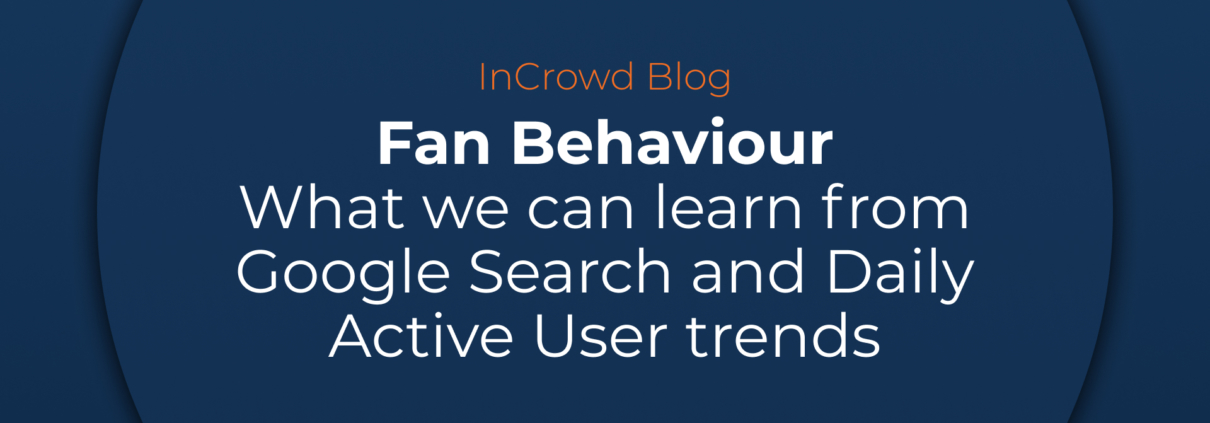Fan Behaviour – what we can learn from Google Search and Daily Active User trends
At InCrowd, we constantly look into how we can best utilise our data and visible trends to understand fan behaviour; this analysis is beneficial to both us and the rights holders we work with. Most recently, we looked into what we can learn about our fans from Google Search and Daily Active User(DAU) trends.
We did the necessary research to produce viable and informed answers using three of our main clients – Lets call them Club A, Club B and Club C. For each club we compared the DAUs and the number of Indexed Google searches on all days in the season so far, and in doing so, noticed that the standard (and expected) trend was that Google searches spiked on match days as did the DAUs – no surprise there.
However, two things stood out to us:
One
On match days, the magnitude of the Google Search spike was much greater than the DAU spike.
Two
On the days where there was a decrease in users for both platforms, the dips for Google search queries were far more pronounced than the DAUs on the app; we actually noticed that apps maintained a decent number of DAUs on a daily basis, even on non-match days.
These observations suggest that the Google platform is a choice source of information on match days. However, Google users could be classed as non-reciprocal, one-off connections that are likely to disengage. Perhaps an away team fan or casual supporter looking for facilities info like travel and parking etc. App usage is clearly fan driven. These fans have an invested and consistent relationship with the app as their lead source of club content, on any day of the year and at any time.
We also asked ourselves what else could affect Google search and DAUs trends:
How about “Big Name” opposition?
Would playing a league leader, or a club from a higher league, have an effect on activity?
For Club A, the largest spikes were for matches against the biggest clubs in the country and those spikes came from Google. DAU numbers did not spike significantly higher than they would have for matches against smaller clubs. We can also speculate that a decent percentage of the Google queries will be coming from the big club supporters.
How about club rivalries?
Would a match against another local club, with storied rivalry, have an effect on usage?
For Club B there were some pronounced Google Search spikes, the largest of which occurred on the days that came up against their biggest rivals. However, once again, DAUs fluctuated only a little. This lends weight to the theory that Google Search numbers were again affected by outside sources. Oppositions fans, media picking up on the storied rivalry for their articles and other interested parties from outside either club.
Both of these mini case studies suggest the same thing – big club opposition and rivalries have little impact on DAUs.
Your fans care about the club, the team and the game, no matter who they are coming against.
What does all this mean?
Simple really. Clubs shouldn’t just rely on the internet and their website to give their fans what they need. Don’t make them search for it. Give fans a direct 24/7 portal to the club and you will see fan engagement and club advocacy improve significantly. To find out how we can help you and your club, contact us now via enquiries@incrowdsports.com or head to www.incrowdsports.com




